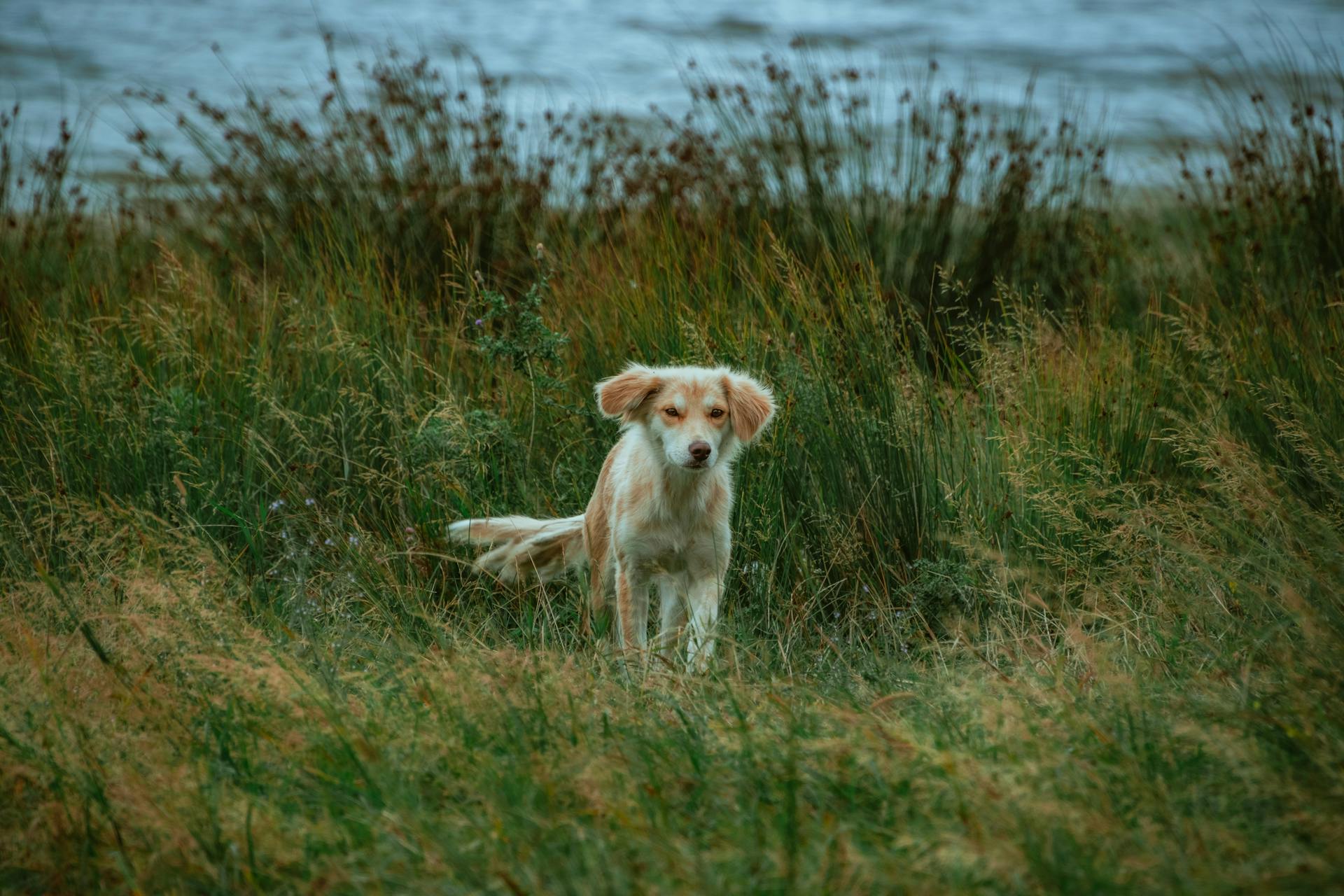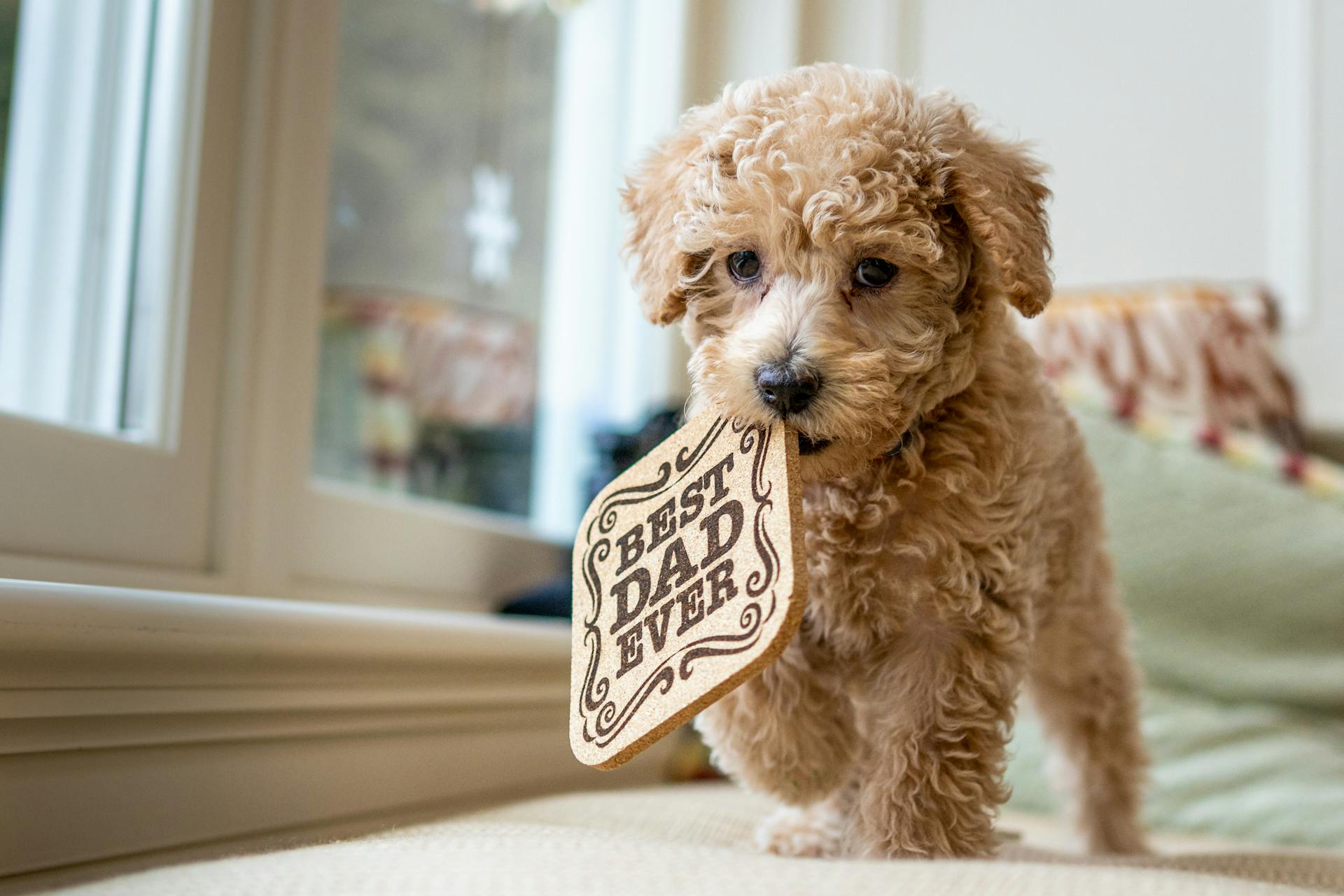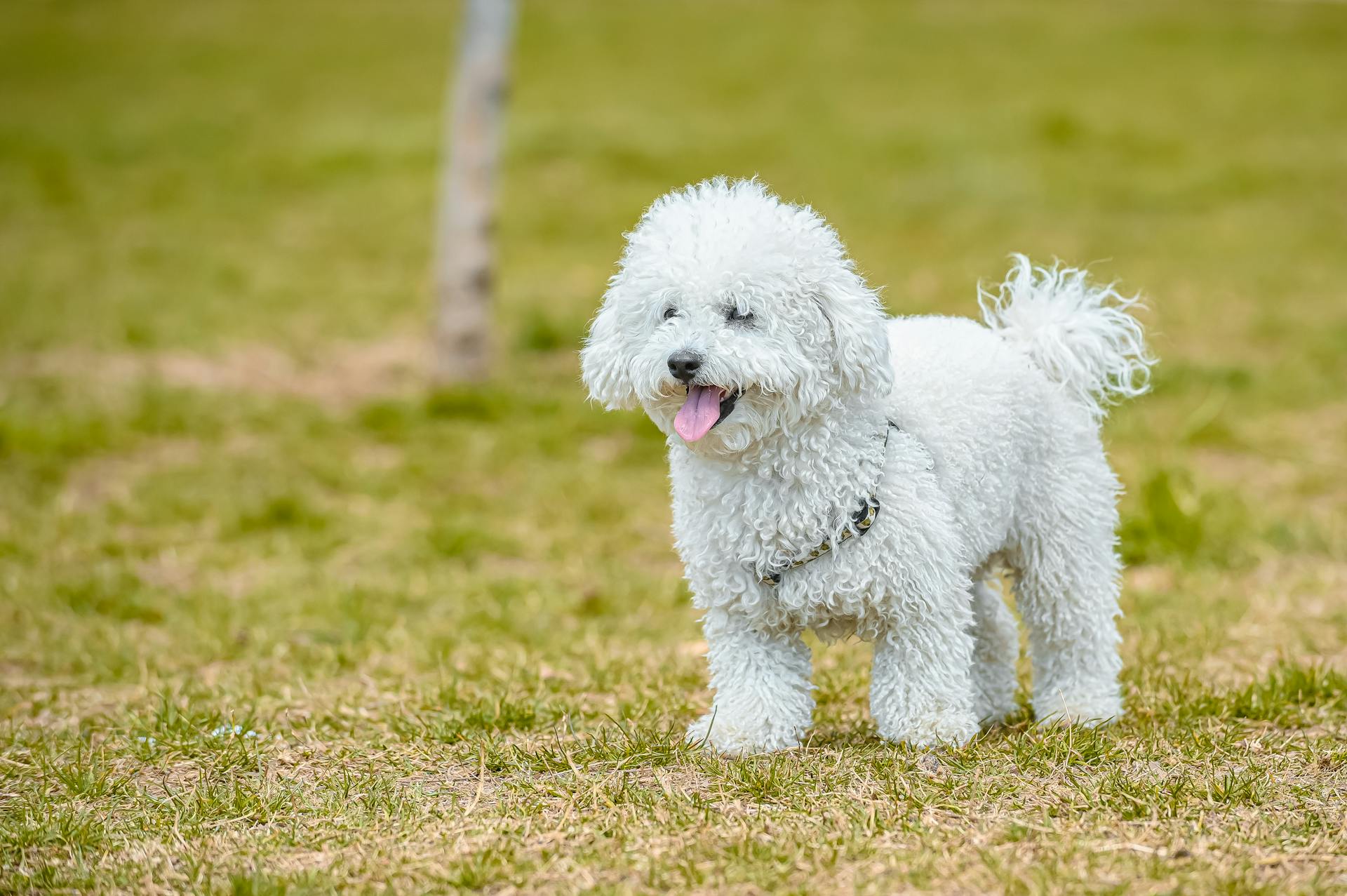
Finding the right miniature poodle breeder can be a daunting task, especially if you're new to the world of poodle ownership. Research is key, and you want to find a breeder who prioritizes the health, temperament, and well-being of their dogs.
A reputable breeder will have a clear understanding of the breed standard and will be able to provide you with information on the puppy's ancestry, temperament, and expected size. They will also be transparent about the health clearances of the puppy's parents.
Look for breeders who are registered with reputable organizations, such as the American Kennel Club (AKC) or the United Kennel Club (UKC). These organizations have strict breeding standards and can help ensure that you're working with a responsible breeder.
Ultimately, finding the right miniature poodle breeder takes time and patience, but it's worth it to find a healthy, well-socialized puppy that will make a wonderful companion.
Worth a look: Do Toy Poodles Have Health Problems
Finding a Breeder
When looking for a responsible breeder, it's essential to do your research. A good breeder will invite you to visit the puppy where it lives, allowing you to see the environment and interaction between the breeder, parents, and puppies.
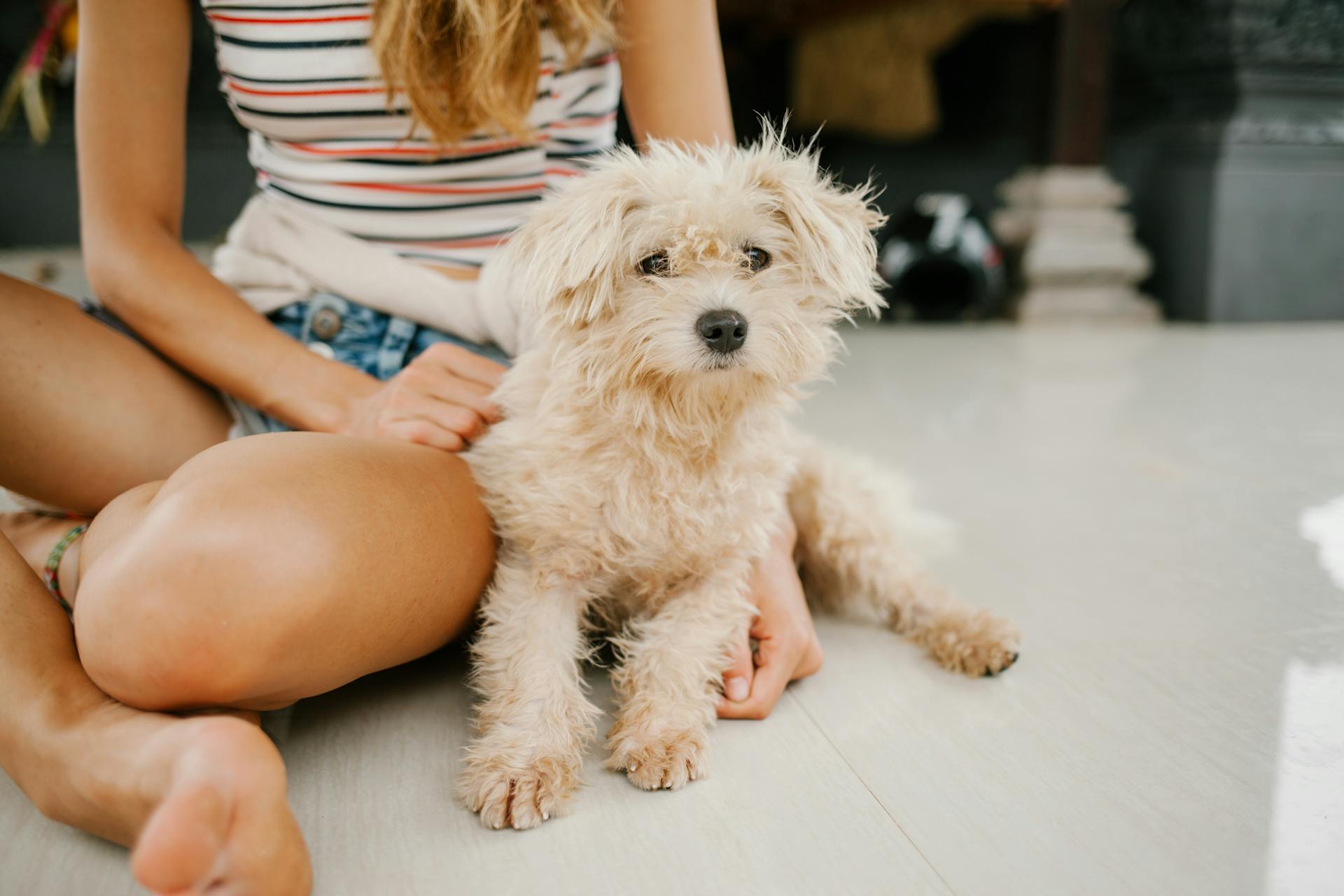
You should look for a breeder who has been audited and registered with a reputable organization, such as the RPBA (Royal Poodle Breeders Association). This ensures they adhere to certain standards and ethics.
A reputable breeder will also provide you with necessary documentation, including an Opti-Gen test result for the sire, which should be "Clear or Normal" to ensure the puppy won't inherit PRA blindness. They'll also give you the pedigree of both parents, showing their AKC Registration numbers.
Here are some things to expect from a responsible breeder:
- They'll invite you to visit the puppy in its home environment.
- They'll provide an Opti-Gen test result for the sire.
- They'll give you the pedigree of both parents, including their AKC Registration numbers.
- They'll have a written letter from a licensed Veterinarian noting the microchip number and overall health of the puppy.
- They'll ask about your previous canine experience to help you find the right puppy for your lifestyle.
Breeder Questionnaire
When interviewing a breeder, ask them about their experience with the breed and their knowledge of its specific needs. A reputable breeder will have extensive knowledge of the breed's temperament, health, and grooming requirements.
Look for a breeder who is transparent about their breeding program and can provide health clearances for the parents of the puppy. They should also be able to show you records of veterinary care and vaccinations for the puppy.
Discover more: Teacup Poodle Health Issues
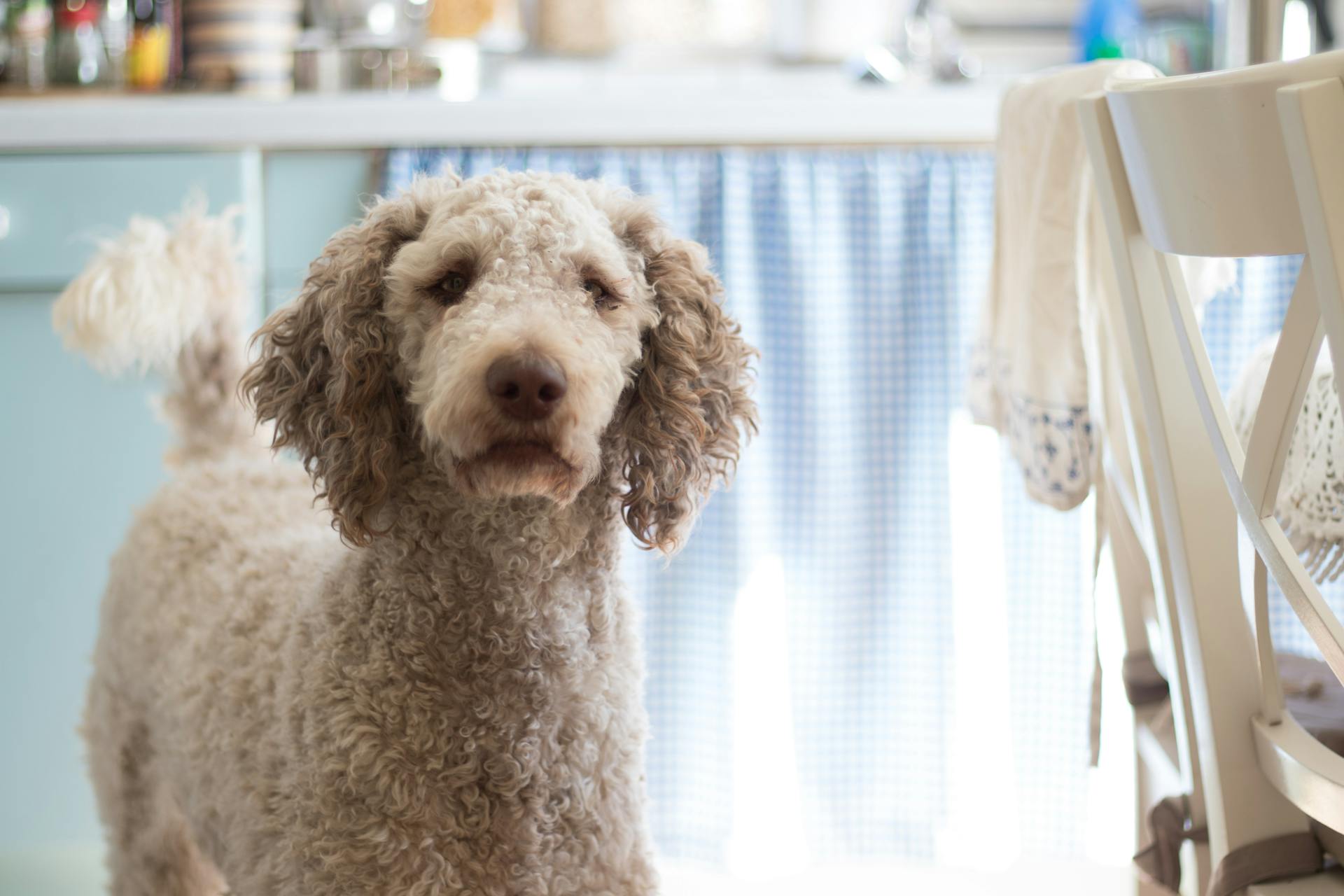
A good breeder will also have a contract that includes a spay/neuter clause, which ensures the puppy will be spayed or neutered to prevent overpopulation. This contract should also include a guarantee of the puppy's health and temperament.
Be wary of breeders who claim their puppies are "pet-quality" but don't provide any health clearances or guarantees. This could be a sign that they're more interested in making a sale than in finding a good home for the puppy.
A reputable breeder will also be willing to let you visit their facility and meet the puppy's parents. This will give you a chance to see the breeding conditions and get a sense of the breeder's operation.
Find a Puppy
If you're looking for a reputable breeder, you can start by using the Kennel Club's Find a Puppy service, which provides contact details for breeders who have puppies available.
Some breeders, like My name is Marilyn, specialize in specific colors, such as apricot and red Miniature Poodles, and are passionate about their work.
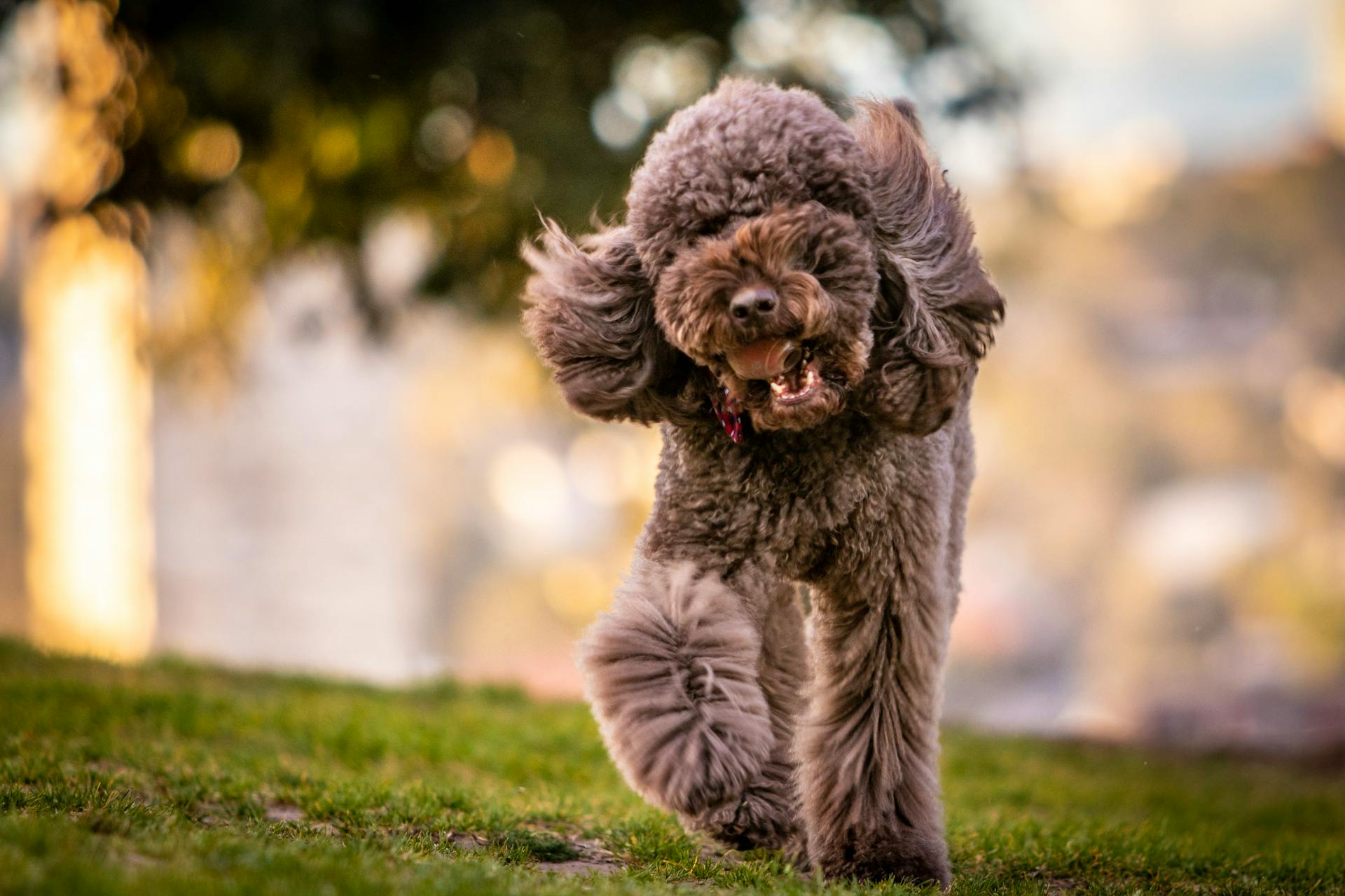
You can also search for breeders by state or region, which can be helpful if you're looking for a breeder in your local area. For example, you can browse Miniature Poodle breeders by state to find a breeder near you.
Some breeders, like Continuing Annette Hull, have been breeding puppies for decades and have a long history of producing high-quality puppies.
Sires & Dams
When choosing a breeder, one of the most important things to consider is the health and well-being of the parents.
The breeder should be able to provide you with the parents' pedigrees and genetic test results, which can give you valuable information about their potential health issues.
All Scarlet's Fancy Poodle Sires are DNA Opti-gen tested for PRA, the leading genetic cause of blindness in the breed, and receive an Optigen Test Certificate, which must be normal/clear before they are bred.
Each parent is veterinarian-checked to ensure they are physically correct and have no family history of disease.
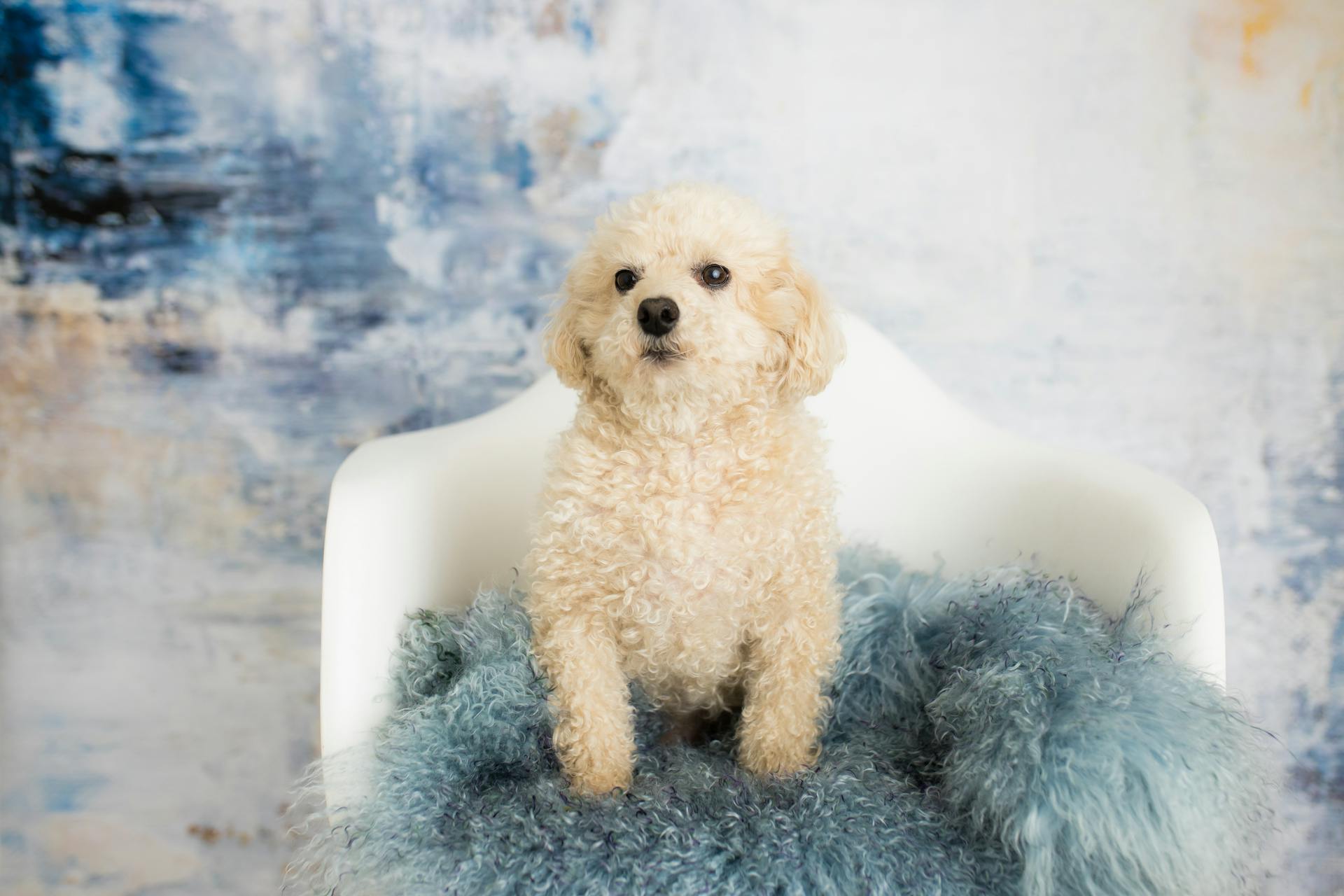
The breeder should have a clear policy on testing for genetic diseases and be transparent about the results.
Each parent's temperament is also evaluated, looking for a normal range of intelligence, friendliness, happiness, and a moderate level of activity or shyness.
The breeder should prioritize breeding parents that are physically correct and have a good temperament, rather than focusing solely on winning show titles.
Take a look at this: Medium Poodle Temperament
Good Breeder's Offerings
A good breeder will invite you to visit the puppy where it lives, so you can see the environment and interaction between the breeder, parents, and puppies.
A reputable breeder's facility should be clean and well-maintained, with happy and healthy dogs. If the puppies seem a little shy around you, remember they don't know you yet.
A good breeder will provide an Opti-Gen test result of "Clear or Normal" for the sire, ensuring the puppy won't inherit PRA blindness.
You should receive a written letter from a licensed veterinarian noting the microchip number and stating the findings of a veterinary examination. This letter should cover the puppy's overall health, heart, palate, and patellas.
Take a look at this: Miniature Poodles Good Apartment Dogs
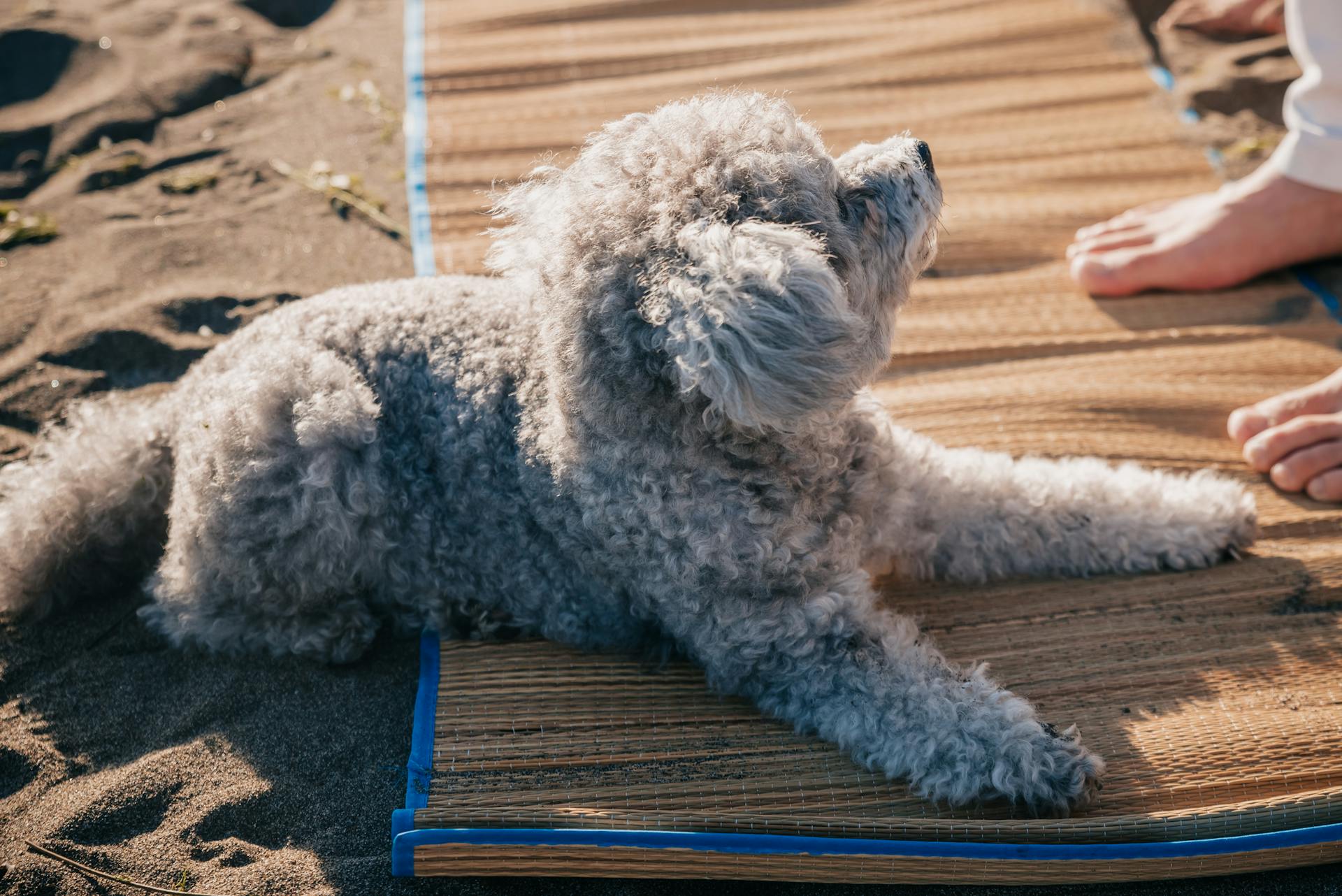
A responsible breeder will ask you about your previous canine experience to help you find the right puppy for your lifestyle.
Here are the key things to look for in a breeder's offerings:
A good breeder will take the time to answer your questions and provide you with the necessary information to make an informed decision.
About This Breed
The Poodle breed has a rich history, originating in Germany where it was bred as a water retriever for duck hunters. Its ancestors were various water dogs of Europe.
The breed's distinctive trim is often misunderstood as a fashion statement, but it's actually a practical feature that originated to aid the dog's propulsion in swimming. The hindquarters are clipped to reduce drag, while protective bands of hair are left on the joints and tip of the tail to shield from cold.
The Kennel Club recognizes three varieties of Poodles, differentiated by size.
Health and Genetics
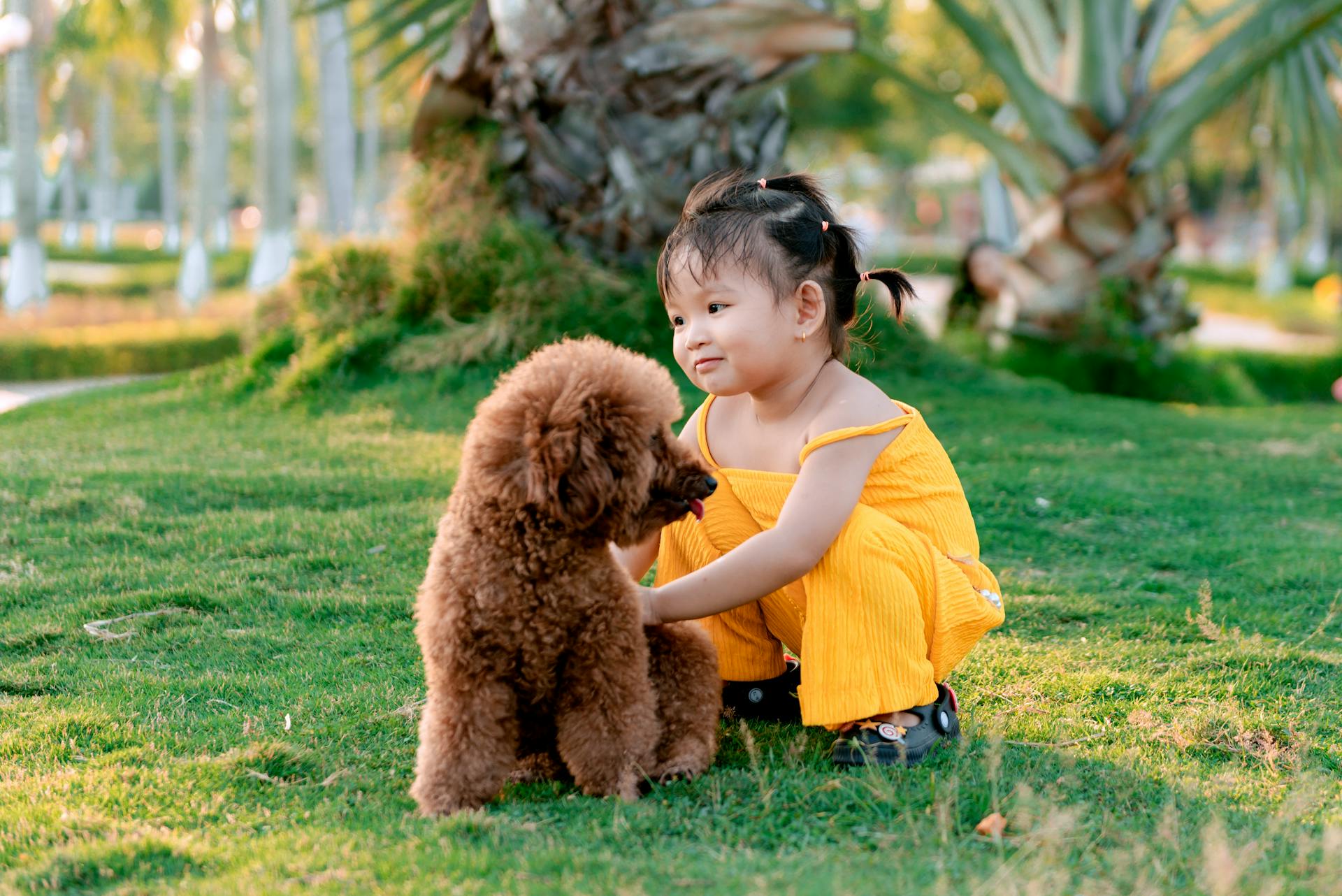
As a miniature poodle breeder, it's essential to understand the potential health issues that can affect your dogs. Osteochondrodysplasia (OC) is a condition that can be found in Miniature Poodles.
You can screen for multiple conditions at once with a breed-specific DNA testing package, which includes tests for OC, Progressive retinal atrophy (prcd-PRA), and a DNA Profile (SNP - ISAG 2020). This package is valued at £195 but is available for £150.
To breed the healthiest dogs possible, breeders should use DNA tests, screening schemes, and inbreeding coefficient calculators.
See what others are reading: Carolina Poodle Rescue Available Dogs
Puppy Selection and Care
When choosing a miniature poodle from a reputable breeder, consider factors like temperament, grooming needs, and exercise requirements.
Miniature poodles are highly intelligent and active dogs that require regular exercise and mental stimulation to prevent boredom and destructive behavior.
They are generally good with children and make excellent family pets, but early socialization is crucial to develop good behavior around kids.
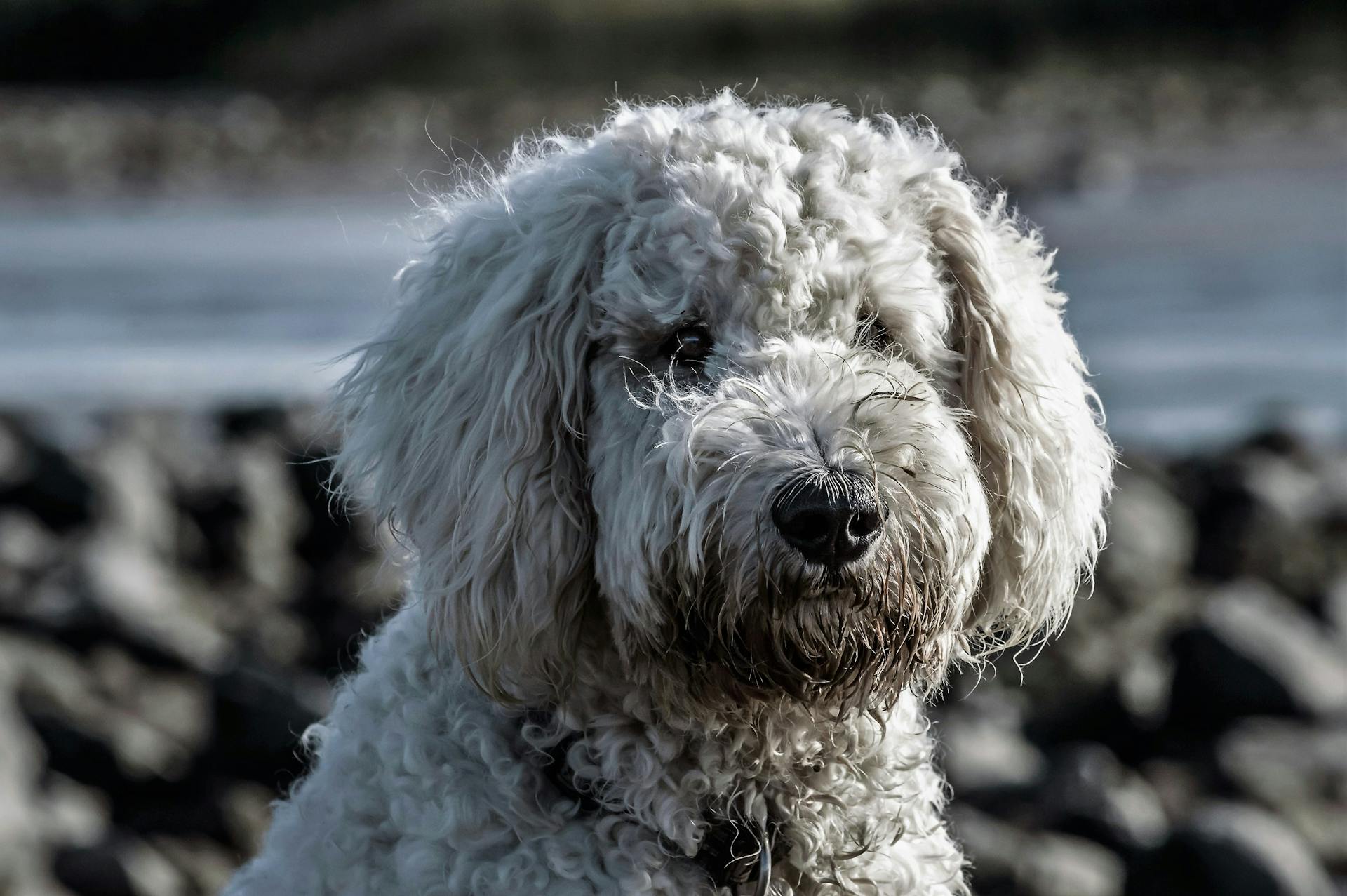
Miniature poodles have a low-shedding, curly coat that requires regular grooming every 4-6 weeks to prevent matting and tangling.
As a result, they are often a good choice for people with allergies or who prefer low-maintenance grooming.
Their small size, typically weighing between 10-15 pounds, makes them a great option for city living or apartments.
However, they still need regular exercise and training to maintain their physical and mental health.
Take a look at this: How to Groom a Miniature Poodle
Featured Images: pexels.com

